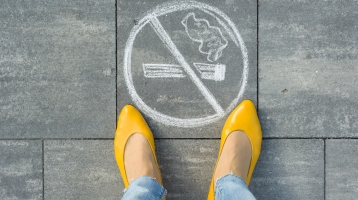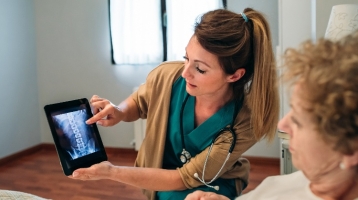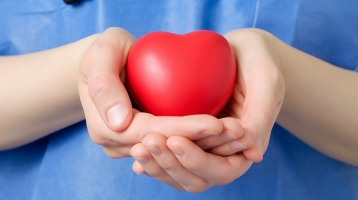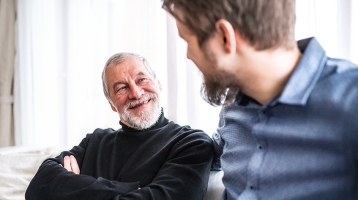Mental Health as a Cancer Survivor
Cancer has more than a physical impact on patients. It’s also a major source of emotional distress, anxiety, and depression – both during treatment and after. During cancer treatment, you were most likely stressed about your treatments, side effects and the impact that cancer was having on the lives of those around you.
Now that you’re a cancer survivor who has overcome your most urgent physical health concern, you may still be experiencing anxiety and stress for different reasons. In fact, sometimes worry, sadness, fear, and anxiety can become worse after cancer treatment ends and you have more time to reflect on your new “normal.” What can you do to regain a more positive and less anxious mental state?
Common Concerns and Feelings after Cancer Treatment
It’s common for survivors to struggle with several challenges at once such as:
- Physical changes to your body that occurred as a result of cancer treatment. Your body may look different with the loss or gaining of weight or from surgery.
- You may not have your previous ability to remember things which can be frightening. This can be a lingering side effect of chemo called “chemobrain.”
- It can be difficult to jump back into your pre-cancer social life, especially if you were active in large groups where people may want to talk about how you’re feeling when you return.
- You may feel stressed out about your financial situation which can include going back to work.
- It’s very common to be worried about cancer coming back. Will it? Where might it reappear, etc.?
- There can also be a feeling of being deserted after treatment. While you were being treated for cancer, you may have been surrounded by helpers – doctors, nurses, friends and family who drove you places, cooked for you, ran errands for you, and helped you maintain your home. Returning to doing things on your own can leave a cancer survivor feeling overwhelmed and even depressed that the support system may have taken a step back.
While you’re no doubt relieved to have survived cancer, you may not have a lot of happiness for a while. That’s OK. It is entirely normal and very common for survivors to experience negative feelings and emotions after cancer.
What Can You Do To Improve Your Mental Health After Cancer Treatment?
- First, recognize that it’s OK to have all of these feelings. It’s normal.
- Discuss the feelings and concerns with your closest family members and/or friends. Together you can decide what can be done to help you feel better.
- Choose 1 or 2 things at a time that you can start to work on to relieve some of the stress. These should be issues you have control over such as your work situation, or getting back to a healthy weight.
- At your next appointment, be sure to tell your cancer care team or your general practitioner how you’ve been feeling. They may be able to offer medications that can help you if necessary.
- Determine whether you might benefit from talking to other survivors. Support groups are available as well as other support services for patients and survivors such as art therapy, journaling, meditation or yoga classes, etc.
Virginia Oncology Associates (VOA) offers several cancer survivor support programs for patients in Virginia. They have nine locations. Check to find the VOA location nearest to you.













